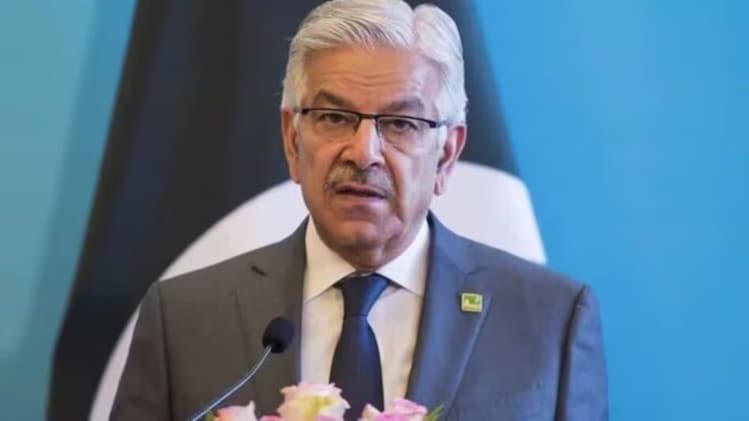Khawaja Asif says Pakistan is back to 1948 UN stance, signaling a major shift in Kashmir diplomacy and bilateral ties with India
In a move that could significantly alter South Asia’s diplomatic landscape, Pakistan’s Defence Minister Khawaja Asif has officially declared the 1972 Simla Agreement “a dead document.” His statement marks a clear departure from decades of bilateralism between India and Pakistan. Asif said Islamabad has now returned to the 1948 UN-backed framework, calling the Line of Control (LoC) a ceasefire line rather than a settled boundary.
This sudden shift carries deep implications for the Kashmir dispute, India-Pakistan diplomacy, and other bilateral treaties such as the Indus Waters Treaty. By rejecting the core of the Simla Agreement, Pakistan seems ready to escalate the Kashmir issue onto international platforms — a path India has consistently opposed.
Pakistan’s Strategic Shift – From Bilateral to Multilateral
Khawaja Asif’s declaration isn’t just symbolic — it reflects a radical shift in Pakistan’s Kashmir policy. The Simla Agreement, signed in 1972 after the Bangladesh Liberation War, was the cornerstone of peaceful dispute resolution between the two neighbors. It specifically emphasized that Kashmir and other matters would be resolved bilaterally, without third-party involvement.
By labeling the agreement “dead,” Pakistan now aims to resurrect the 1948 UN resolutions, which proposed a plebiscite in Kashmir. Asif explicitly said that future disputes would now be handled through multilateral or international institutions, effectively bypassing bilateral negotiations with India.
This shift comes in the backdrop of India’s 2019 revocation of Article 370, which removed the special status of Jammu & Kashmir. Since then, Pakistan has repeatedly taken the issue to the UN, OIC, and other platforms — with limited success. But with this new stance, Pakistan has made it official: the era of bilateral peace frameworks is over, at least from Islamabad’s side.
What This Means for India-Pakistan Relations and Water Security
Shimla Agreement is a “DEAD DOCUMENT,” now, the LoC will be considered a 'CEASEFIRE LINE' like prior 1948 and fresh dialogue is required regarding its status : Khawaja Asif - Def Min of Pak
— OsintTV 📺 (@OsintTV) June 5, 2025
Mind voice of Indians : Yahi tho Chahiye tha hamei 😁
Video : Samaa pic.twitter.com/EqJzA35LlY
Asif also linked the fate of the Indus Waters Treaty to this breakdown, stating, “Whether the Indus Waters Treaty is suspended or not, Simla is already over.” This suggests that Pakistan may reconsider or challenge the treaty, which governs water sharing of the Indus river system between the two countries. For context, India has already been signaling reassessment of the Indus Waters Treaty following Pakistan’s repeated international posturing on Kashmir.
India’s response is likely to be firm. New Delhi maintains that Kashmir is an internal matter and that any attempt to internationalize the issue is unacceptable. India also sees the LoC as a settled boundary, not a temporary ceasefire line.
If Pakistan indeed abandons all bilateral frameworks, it not only undermines regional stability but also raises questions about future crisis management, given that both nations are nuclear powers.





















